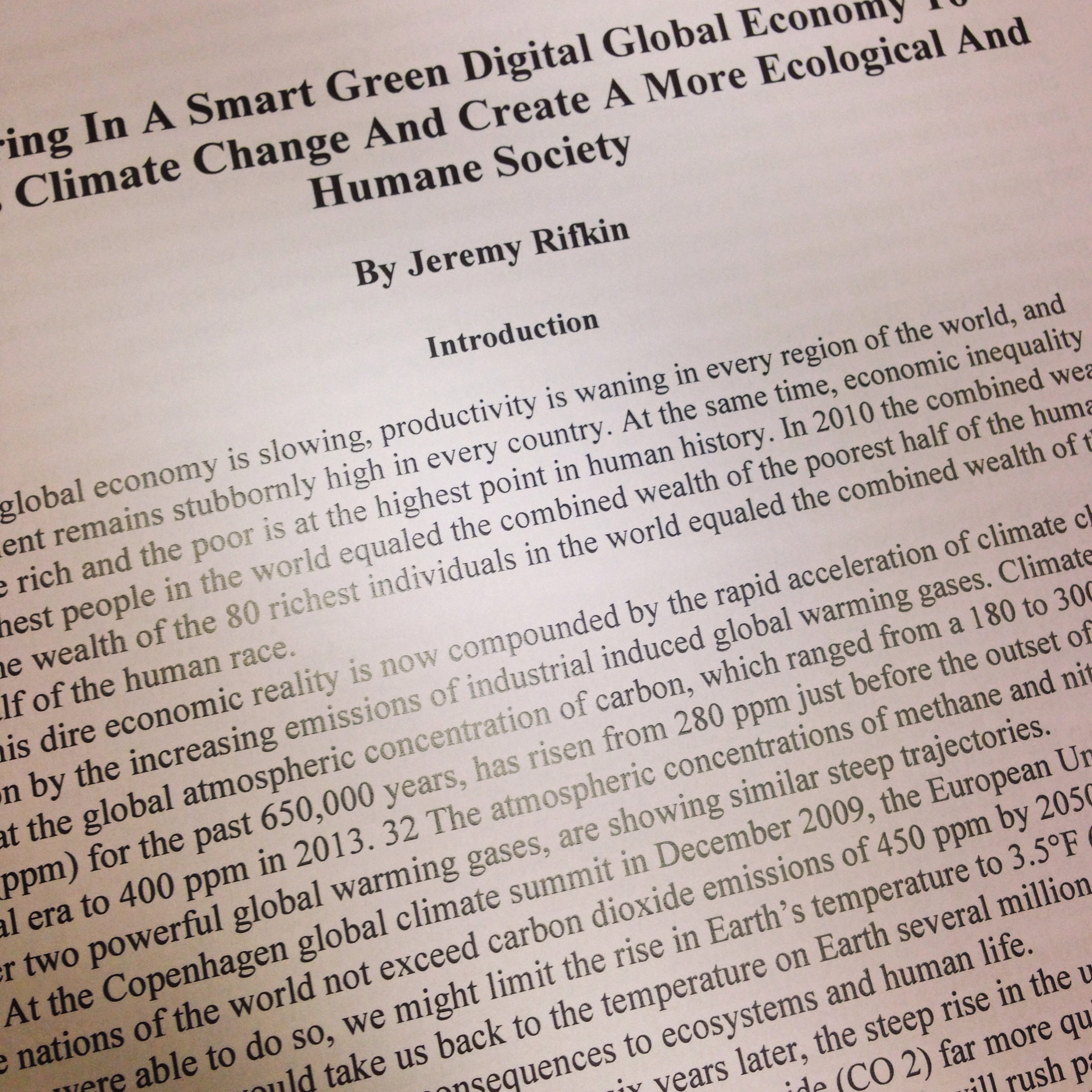
Vegetarian Jeremy Rifkin calls for more empathy with fellow creatures
In Luxembourg, right now (almost) everyone talks about American economist and futurist Jeremy Rifkin. Last week, he delivered the keynote speech at the Luxembourg Sustainability Forum 2015 with the title “Ushering in a smart green digital global economy to address climate change and create a more ecological and humane society”. He presented his hypothesis of the so-called Third industrial revolution, the end of traditional industries and the new digital economy and this has started a discussion about our current economic system, the paradigm of the necessary economic growth and the social impact of an end of this system.
At the Sustainability Forum, after critizising the current organization of our societies, he expressed his “expectation, or rather hope” that the development of communication networks will ultimately lead to a better society.
That’s where our attitude towards animals comes into play.
“Emphatic sensitivity is expanding laterally as quickly as global networks are connecting everyone together. Hundreds of millions of human beings – I suspect even several billion – are beginning to experience ‘the other’ as ‘one’s self’, as empathy becomes the ultimate litmus test of a truly democratic society. Millions of individuals, especially young people, are also beginning to extend their emphatic drive to include fellow creatures, from the penguins and polar bears adrift on the poles to the other endangered species inhabiting the few remaining pristine, wild ecosystems”, he said.
As he talked about empathy, the degradation of the biosphere and called for a new way of life for the new ecological era, I was wondering what his personal lifestyle looked like. And I found out – great news! – that he has been a vegetarian since 1977 and that he is married to an animal rights activist, Carol Grunewald, from the Humane Society of the United States.
Jeremy Rifkin also is the author of a book called ‘Beyond beef’ where he noted in 1993 already that about 1/3 of the world’s total grain harvest is fed to cattle and other livestock, while a billion people suffer from chronic hunger and malnutrition. Being an economist, his first argument against the consumption of meat, in this book, is however the inefficiency and high cost of producing meat (sigh!).
Rifkin signed an agreement with the Luxembourg government to launch a study on what strategy should be adopted by Luxembourg to help turn it into a pioneering country in this new revolution.
